The views expressed in our content reflect individual perspectives and do not represent the authoritative views of the Baha'i Faith.
With George Floyd’s death, many experienced a profound collective wake-up call, realizing the depth of systemic racism related to the treatment of African Americans by police in the United States.
Of course, the African American community had long been aware of the injustice and severity of this problem, and Floyd’s gruesome televised death represented yet another tragic instance of police brutality. But now a more widespread grasp has begun to develop, of how something essential needs to change in the relationship of those pledged to protect and help our citizens and those with darker skin.
This problem, people everywhere began to realize, related to all of us – not just to those most affected.
RELATED: How Baha’is Responded After George Floyd’s Death
In the small town of Eliot, Maine, where Green Acre, a Baha’i Center of Learning, has existed and promoted racial unity since the 1890s, the staff engaged in its own dialogue about how racism could be addressed. They sponsored a series of visual art exhibitions and theatrical performances that related to this challenging issue, and in the process an ongoing sense of the urgent need for conversation and for healing grew.
Concurrently, the Eliot police chief, Elliott Moya, decided to approach the staff of Green Acre with a sincere plea for help: how could the Eliot police force grapple with the issue of racism in a more positive and change-oriented way?
The result: a series of profound conversations that involved honest reflection, personal sharing, and transformation, now documented in the Baha’i video series A Rich Tapestry, titled “A Maine Discourse on Systemic Oneness.”
According to its description on the Bahai.us website, this video series is “grounded in several Baha’i-inspired principles such as the oneness of humanity, the inherent nobility of all people and the importance of universal participation” and encourages “participants to explore what it means to be a community for all.” The video series’ conversations included “institutions and agencies confronting obstacles to unity and justice while working to develop a capacity to serve everyone” and “chronicles one approach to learning in action.” Watching the series leads participants to consider what we might do in our own communities in the quest to achieve greater unity.
Abdu’l-Baha, son and successor of the Baha’i Faith’s prophet and founder Baha’u’llah, when visiting America in 1912, warned:
This question of the union of the white and the black is very important, for if it is not realized, difficulties will arise, and harmful results will follow. If this matter remaineth without change, enmity will be increased day by day, and the final result will be hardship and may end in bloodshed.
Hardship and bloodshed have been all too prevalent in the ensuing decades. One of the most difficult permutations of the us/them dichotomy has been the police force and African Americans, especially because of the way power and privilege have been used by one group on the other. In part 1 of the Tapestry series, “Creating Space for Conversation,” Police Chief Moya, though in a small town in a state without great diversity, describes how he was disturbed by the “racial reckoning” taking place in the United States, and wondered about what his own staff knew about terms such as “white privilege” and “Black Lives Matter.” This led to his interaction with the Green Acre staff members, who were primed for honest, meaningful conversations about race.
The space for interaction that initiative created allowed for surprising results for all involved. Najee Brown and Frank Robinson, African Americans affiliated with Green Acre, expressed their nervousness about associating with an institution “on the national hotbed.” Green Acre staff member Jessica Gaines shared her own bias against the police. Yet anxiety and nervousness gradually gave way to understanding, friendship, and change, giving the Baha’is an opportunity to put into practice what is clearly stated in the Baha’i writings, and the police officers to see how these teachings could help bring about awareness and change hearts.
Part 2, “Loosening the Hold of Biased Norms,” shows how in the process of studying together and sharing their own burdens, participants began to listen to each other and care more about each other and the diverse perspectives they brought, fostering trust and openness.
The police staff voiced new awareness of the diversity of education and experience others may have had, and asked themselves, “How can we be police in a better way?” The Baha’is became aware and appreciative of the mission statement of the police and the challenges of upholding that mission. They also came to realize more profoundly how to implement the words of the Universal House of Justice, the international governing body of the Baha’i world, who stated in a letter to the Baha’is of the United States:
Every believer, as the promulgator of Baha’u’llah’s central principle of the oneness of humanity, should deeply meditate upon it and weigh its demanding implications for the profound alteration of thought and action required at this time.
They also drew deeply from a message from the National Spiritual Assembly of the Baha’is of the United States related to the critical time period in which we live:
The teachings of the Baha’i Faith instruct us to work to reshape society based on principles of love, inclusiveness, and reciprocity. This requires that our means be consistent with our ends – that is, by transcending current approaches that tend to divide people into contending groups, raising consciousness in such a way as to bring them together in the earnest and honest search for solutions.
The language we use and the attitudes we take, while not ignoring the harsh realities that exist in the world, should appeal to the nobler aspirations of our fellow-citizens. They should reflect assurance that the vast majority of us sincerely desire justice, and must be unifying rather than divisive.
RELATED: Only Human Unity, on a Spiritual Level, Can Assure Our Survival
In part 3 of the video series, “Seeds for Transformation,” others joined the conversation, including the Rockingham County attorney and a group of New Hampshire lawyers, who came for workshops at Green Acre and then brought the conversation model to their own agencies. Further honest exchange and exploration occurred, resulting in significant individual and collective grappling with racial prejudice. In the process, Green Acre director Robert Sapiro, always eager to implement new ways of addressing problems such as racial inequality, emphasized the importance of demonstrating principles of unity through action, which would then have the most effect on others.
The participants in the training became eager to take the process to others. In less than a year, the conversations spread, with more people acknowledging how racism is rooted in a system that needs to be and can be changed.
The series ends with a brief depiction of an artistic collaboration with a local theatre company – Seacoast Repertory Theatre – called “Project Empathy,” in which paired actors tell their partner’s story in first person, rather than their own story, to an audience. The short video excerpt leaves the viewer wanting to see, know, and experience more of this empathetic method of getting to know and share someone else’s reality.
The video series can be found at: https://www.bahai.us/a-maine-discourse-on-systemic-oneness/
Watching the series and reflecting and acting on its example might lead to change within ourselves that can ripple out to our communities and to our world.
A Rich Tapestry is a video storytelling series that expresses and illustrates how love is being translated into action to address questions of race and culture in the United States. For other programs in the series, see https://www.bahai.us/stories/a-rich-tapestry/



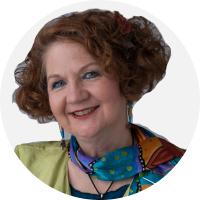

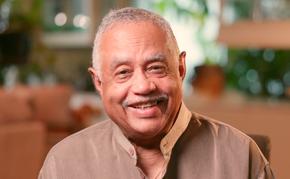





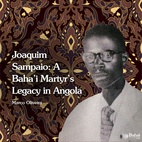
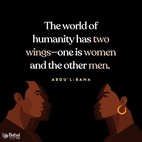
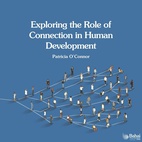
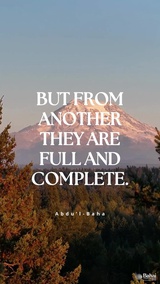


Comments
Sign in or create an account
Continue with Googleor